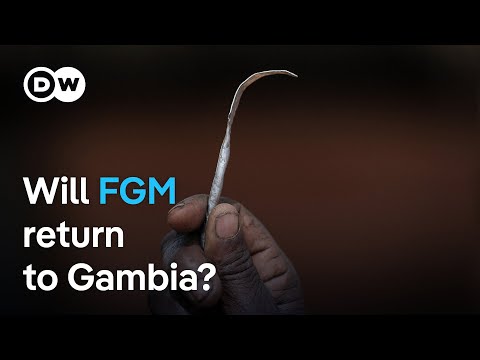Female Genital Mutilation is recognized internationally as a violation of the human rights of girls and women. But it is still being practiced in many African, Middle Eastern and Asian countries, despite official bans.
About 200 million women and girls alive today have undergone FGM. The largest share of – 144 million – are in Africa.
FGM involves removing healthy and normal tissue from the female genitals. It is mostly carried out on girls between infancy and the age of 15. Many are left with both immediate and long-term complications. Treating these complications is estimated to cost health systems over a billion dollars every year.
Gambia has one of the highest levels of FGM in the world, so it was a huge victory for activists when the country banned it in 2015. But now, barely a decade later, the ban could be overturned. Gambia’s parliament is due to vote on a bill that will reverse the ban. The prospect has alarmed health and human rights activists in Gambia and worldwide.
00:00 Intro and report
04:35 DW speaks with Dr. Wisal Ahmed, Global Coordinator of the UN program on the Elimination of Female Genital Mutilation
Subscribe: https://www.youtube.com/user/deutschewelleenglish?sub_confirmation=1
For more news go to: http://www.dw.com/en/
Follow DW on social media:
►Facebook: https://www.facebook.com/deutschewellenews/
►Twitter: https://twitter.com/dwnews
►Instagram: https://www.instagram.com/dwnews
►Twitch: https://www.twitch.tv/dwnews_hangout
Für Videos in deutscher Sprache besuchen Sie: https://www.youtube.com/dwdeutsch
#Gambia #FGM #WomensRights






